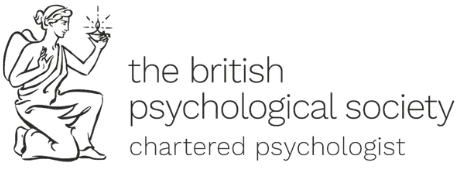CBT & ERP Therapy in Dublin for OCD & Anxiety Disorders
Dr Elaine Ryan
is a Doctor of Psychology with over 20 years of experience
She is a skilled and experienced therapist with a background of working in the UK NHS as a Highly Specialist Psychologist. She provides evidence – based CBT and ERP for OCD and Anxiety Disorders.
Areas I specialise in
I’m Dr Elaine Ryan (PsychD), Doctor of Psychology. My doctoral training covered a wide range of mental health presentations, but my clinical work now focuses primarily on OCD and anxiety disorders. I provide evidence-based CBT and, for OCD, Exposure and Response Prevention (ERP) — structured, practical treatment designed to reduce compulsions, avoidance, reassurance-seeking and panic cycles.
Online Screening Test
I have a selection of online tests that can tell you more about your condition

Therapy Services
Choosing therapy in Dublin can feel confusing because there are so many titles and approaches. If you’re struggling with OCD, health anxiety, panic attacks, or anxiety, the most effective evidence-based treatments are Cognitive Behavioural Therapy (CBT) and — for OCD — Exposure and Response Prevention (ERP). I specialise in CBT and ERP for OCD and anxiety disorders (in person in Dublin and online across Ireland). Therapy is structured and practical: we identify the cycle that’s maintaining the problem (avoidance, safety behaviours, reassurance, compulsions) and use step-by-step practice to change it.

CBT (Cognitive Behavioural Therapy)
A structured, practical therapy that helps you break anxiety and panic cycles, reduce avoidance and safety behaviours.

ERP (Exposure and Response Prevention)
A form of CBT designed for OCD. ERP helps you face triggers without doing compulsions or subtle safety behaviours (including mental rituals).

ACT (Acceptance and commitment Therapy)
Acceptance-based skills that build tolerance for uncertainty and help you move toward valued actions instead of anxiety-driven habits.
Your therapy, your way.
Different ways to access therapy
I aim to make therapy accessible to those who need it, in whatever format that allows you to get the help you need, when you need it. I believe everyone deserves access to quality mental health support. That’s why I offer a variety of therapy formats to meet your individual needs and preferences.
In-person
Traditional face-to-face therapy In Dublin office for those that live in Dublin and prefer to meet face to face.
Online Therapy
Access therapy from anywhere in Ireland or the UK at a time and location that suits you the best.
Self-Help Courses
Specialised online courses using CBT. I have a range of courses available to start right away.
Resources
How to Find the Right Therapist for Health Anxiety in Ireland
If you’ve read my previous posts, you’ll already know that health anxiety has a specific pattern symptom > fear > checking/reassurance/Googling > short relief …
Health Anxiety Recovery
Getting Help for Health Anxiety in Ireland: GPs, Therapy and Pathways
If you have been diagnosed with health anxiety or suspect that you may have it, this page is to show you how and where …
Health Anxiety Recovery
How to Talk to Your GP About Health Anxiety
Most people that I have worked with over the years do not initially set out to book an appointment with their GP to discuss …
Health Anxiety Recovery
Early Signs of Agoraphobia: A How to Know Test
Agoraphobia creeps up on you slowly, usually after you start having panic attacks; but unlike panic attacks that come out of the blue, there …
Agoraphobia Recovery
Graded Exposure for Agoraphobia: How to Build Your Hierarchy
If you have been researching how to recover from agoraphobia you will certainly have come across graded exposure, and in this article I want …
Agoraphobia Recovery
How Agoraphobia Is Diagnosed in Ireland (and What to Expect)
In this guide, I’ll walk you through exactly how agoraphobia is diagnosed in Ireland, what to expect when you talk to your GP or …
Agoraphobia Recovery

